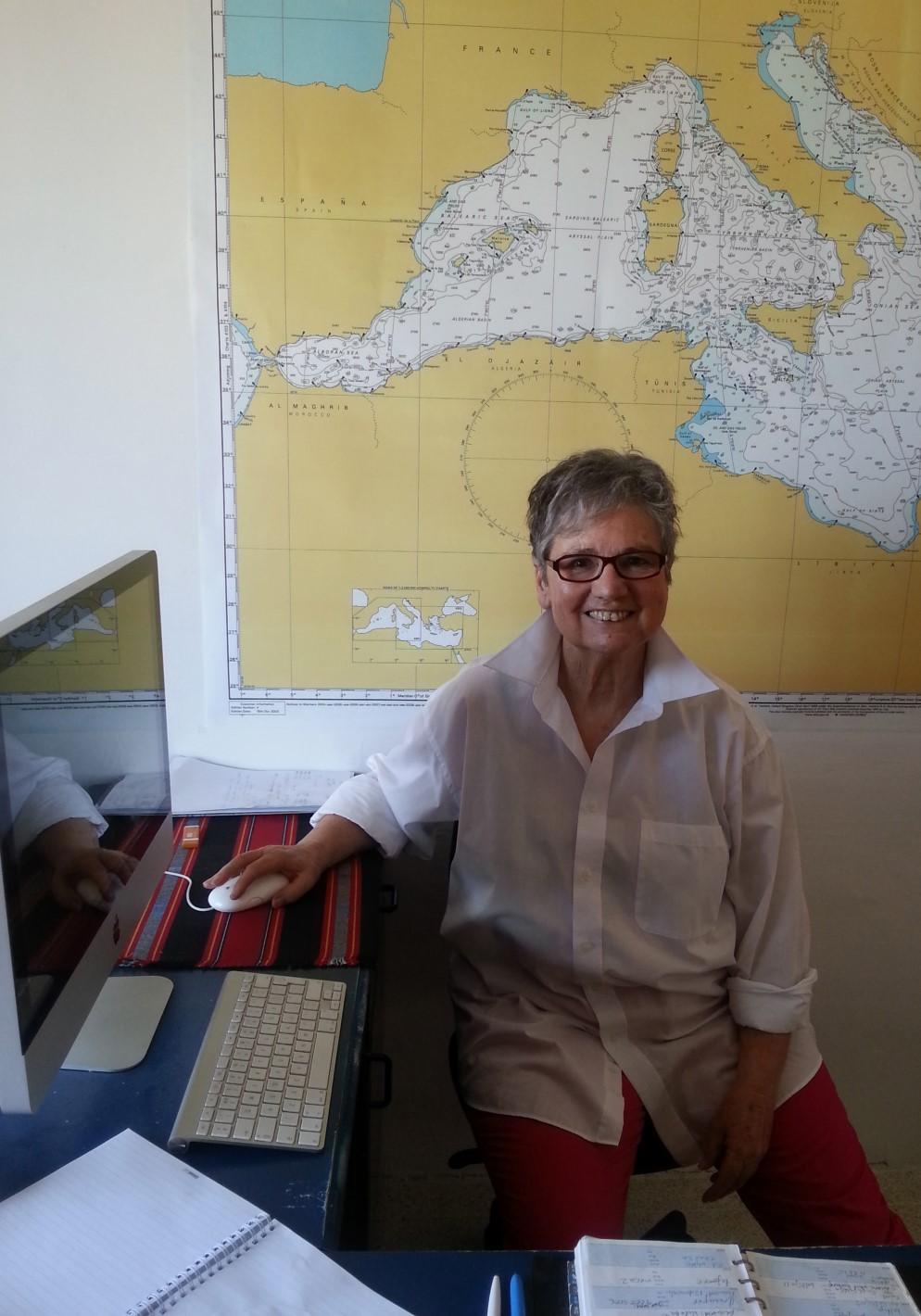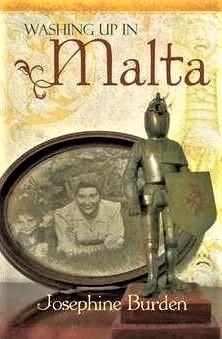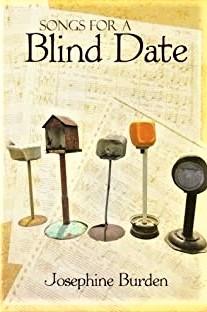
8 minute read
Intervista ma’ Josephine Burden
AN INTERVIEW WITH JOSEPHINE BURDEN, AUTHOR OF WASHING UP IN MALTA AND SONGS FOR A BLIND DATE.

Advertisement
I just read in a few days your first novel Washing Up in Malta (2012). This is part of a trilogy: a second published novel, Songs for a Blind Date (2013), and a third volume (still in the making) made up of short stories. I know that your first novel binds strongly with Malta. What about the second and third volume of this trilogy?
Yes, Malta weaves through the lives of the two main characters, mother and daughter, in my first novel, Washing up in Malta. In a sense, Malta is a third character in the narrative. The second book, Songs for a Blind Date, retains a similar structure to the first in that the narrative traces the lives of two people, Jessica, one of the characters in Washing up in Malta, and Ernesto, a post-war child migrant from Italy to Australia. The stories are linked together in a third narrative running through the interludes and referring also to the first book. However, although Malta features, the focus is on migration to Australia and the love story of two people in an adopted land.
The third book, Middle Sea Dreaming, once again has Malta as central but is about travel around the Mediterranean Sea as a solo woman in later life. The interludes are again used as a linking narrative set in Malta, now gripped by a pandemic that prevents travel. The mythical and historical stories of the women who are often hidden from history in the public monuments and museums visited by the traveller, Jessica, are researched and linked to her memories of life and travel. This is the first novel in the trilogy where first person narrative is used throughout and re-editing continues. I am looking for a publisher in Malta this time.
An important element in your writing is the strong spiritual bond with the land you are born in. Reactions?
Australian Aboriginal people believe that we all have a powerful connection to the place where we are born and if people are prevented from returning they are incomplete. Yet the history of humanity is one of migration. It is this contradiction that intrigues me.
In Washing Up in Malta you recorded changes that happened in Malta along the years. How do you see Malta today compared to that of the 60s, 70s and 80s?
One of the interludes in Washing up in Malta records the return of the narrator to St George’s Bay 50 years after she lived there as a young girl. I write about the profound sadness in finding our memories concreted over and erased. The Malta we have created today is unsustainable. I don’t refer to nostalgia for a way of life that no longer exists but to the overexploitation of the natural resources of Malta. Wherever I can, I support those NGOs and activist groups who resist the overdevelopment of the land and increasingly now the sea. When I came to live in Valletta over a decade ago, I did not get a car, as one of the reasons for my move from Australia was that I wanted to be part of the change towards a sustainable future. Malta is small and presents the opportunity of developing a transport system that is not car dependent. But I think we have lost our way and I no longer enjoy walking or taking the bus.
Do you consider your writing feminist? Male characters are just passers-by. Grace (mother) and Jessica (daughter) are the real solid characters in
your novel. I liked a final sentence where you write, “My mother’s story is my story, but I have my own story as well.” It’s a herstory (not history) above all. What do you think?
I am a woman and I write from my perspective as a woman. I have also had over 70 years of experience of the ways in which men are privileged over women in the social systems we have established for ourselves. Across the centuries, some women have made choices in their lives that challenge the dominant narrative. Sometimes, like all people, men or women, we go along with the norm in order to survive. In my third novel, Middle Sea Dreaming, I write about some of the women around the Mediterranean Sea, including Malta, who have lived extraordinary lives and yet whose stories are trivialised rather than presented as heroic.
Scotland, the Bahamas, Malta, Australia. How are they linked and how do they vary in your experience as a traveller?
I grew up in a travelling household and my mother taught me to carry home within me. As an adult, I did not plan to travel but rather I travelled to support myself and find out about my world. The sea has always played a significant part in my sense of home and I have been most happy living by the sea. I travelled to Australia in pursuit of work and stayed because I liked the openness of place and culture. When I became a citizen, I thought that Australia was where I would end my days. However, as I grew older and began to contemplate life beyond paid work, I realised that I wanted to live somewhere smaller. I am privileged in being able to migrate at will and to seek different resources in a place as my needs change.

The importance of past and present, and getting to know oneself even from others. How do react to this?
Feminist writers talk about self in relationship –that as humans, we know ourselves in relation to the other and to the humanity we can identify in us all. As an introvert, I am comfortable with my own company and with reflecting on my actions. But I am also aware that I am who I am as a result of the thoughts and actions of other people down the centuries and that my future is shaped by my past and present. I am also interested in how reflecting in

the present can change our understanding of the past. We cannot rewrite history but we can identify other aspects of which we had no awareness and we can make links that we had not made before. Thus knowing ourselves is a process rather than a destination.
Memories become solid when written ink on paper. How important is this to you?
Yes, the past becomes more real when shaped into a narrative and that is an important aspect of reflection on a life. As I have grown older I have wanted to review my life and I think this is a natural process for those of us who are lucky enough to live into old age. It has helped me to grow in confidence in terms of who I am. However, we also need to remain open to new possibilities and connections that shift the past in different ways so I am wary of declaring one particular story the only possible story that can be told
In the final part of the first novel we read: “… the
future of Malta lay in the hands of those who remained behind…” How do you perceive the Maltese “who remained behind” today in today’s multicultural Malta?


Australia continues to struggle with recognition of First Nations people who were deprived of their land by the colonisers who declared a policy of Terra Nullius wherein the land belonged to no one allowing the coloniser to claim it as their own. Malta is in a different position. Although we have been colonised and influenced by many different powers down the centuries, in recent history Malta has become an independent member of the European Union. Thus, although Malta has a huge diaspora of citizens who left during hard times, it was the ones who stayed behind who managed to shape independence. However, all Maltese are the product of a history of diversity and it is impossible to say who the First Nations people of Malta might be. Recently, considerable energy has been channelled into the quest for “Maltese identity” and sadly this quest has sometimes resulted in a nationalist appeal that excludes and denigrates the other.
Can you describe a normal day in your life? Who is Josephine Burden as a human being?
My flat in Valletta overlooks the entrance to Grand Harbour and I spend part of my day sitting at my window watching the harbour traffic and reading. This year has been exceptional in that I have been unable to travel but I have gently established patterns that keep me active and engaged. I walk and swim and have devised a set of home exercises for stretching and strength. I also spend daily time in the common space of the roof establishing a container vegetable garden and this has opened me up to my neighbours even whilst we maintain safe distance. I now take great pleasure in a daily harvest of tomatoes and other vegetables for the table. Strangely, my projects in painting and writing did not come to the fore although I have now started on what I hope will be a final revision of Middle Sea Dreaming that includes my experiences during the pandemic. As a human being, I sometimes have surges of anger at the damage that we continue to inflict on our world and I try to live my own life in sustainable ways and take pleasure in small things.
METAMORFOSI
Ilbieraħ kont gwerrier mimli bil-qilla, f’kull eventwalità li setgħet ġiet. Illum l-armi ħallejthom f’ġenb jissaddu, jinksew bl-għanqbut ta’ dak li darba kien.
Ilbieraħ kont vulkan mix-xfar niżbroffa, bil-lava tinżel taħraq kull fejn tgħaddi.
Illum inbeżżaq bżieq ta’ indifferenza lejn dawk li stmajt u huma ma stmawnix, ilbieraħ żbaljajt noħloq l-avversarji, illum matur aktar nagħmel il-ħbieb.







